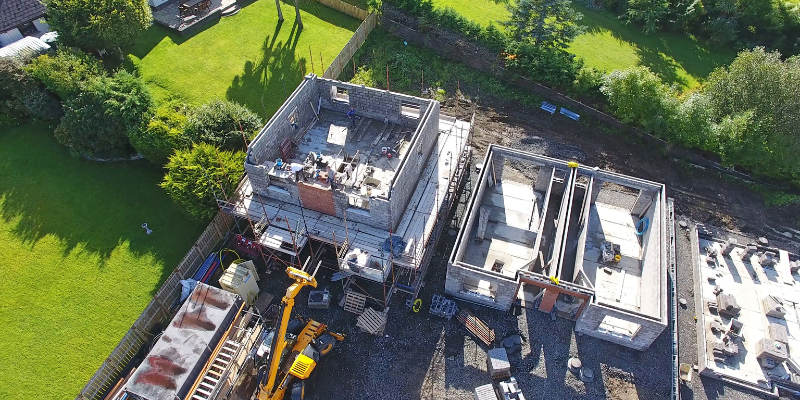In This Section
Ireland’s notoriously cyclical construction sector will continue to disrupt housing market, expert warns

- Ireland’s construction sector will continue to disrupt housing markets unless systematic changes are implemented, a leading planning expert has warned.
- Dr Nicholas Mansergh MIPI will address UCC public lecture on 20 May.
- Event hosted by UCC Centre for Planning Education and Research and the Irish Planning Institute.
Ireland’s construction sector will continue to disrupt housing markets unless systematic changes are implemented, a leading planning expert has warned.
Ireland’s construction sector has been dominated by booms, busts, housing shortages and surpluses, soaring and crashing prices and this cyclicality must be tackled in order to minimise negative impacts on the delivery of housing.
Dr Nicholas Mansergh MIPI, a leading planner, will address a public lecture on the future of housing in Ireland at University College Cork (UCC) on Monday, 20 May.
Michael O’Flynn, CEO of the O’Flynn Group and a prominent commentator on construction and development in Ireland, and Professor Cathal O’Connell, Interim Head of UCC College of Arts, Celtic Studies and Social Sciences, who has led extensive research on housing and social policy, will also address the event.
Ahead of the public lecture, Dr. Mansergh said: “Along with Spain, Ireland has the most cyclical construction sector in Europe. Institutions do not currently perceive it in those terms, though, and priority is generally given instead to more immediate or pressing issues. If this perception changed, periodic cyclically-prompted disasters would be seen instead more as extreme symptoms of this problem and less as aberrations arising from periods when the industry and the government temporarily lost the run of themselves.”
“It is not enough to propose, enact and implement whatever reforms to the construction process that are deemed necessary at any individual point in time. Instead, a more committed systemic approach is needed; one which to able to cope with the ups and downs of the cycle while at the same time convincing vested interests that we are serious about long-term and durable policy shifts,” Dr Mansergh said.
Brendan O’Sullivan, Head of the UCC Centre For Planning Education and Research, said: “Over the years, a range of commentators have tackled the tricky subject of planning and development in Ireland. Many of these voices share a common concern with how best our cities and towns should evolve to serve the common good. A voice that we rarely hear in this space however is that of the professional planner. Although planners play an important part in the dynamics of development in Ireland, their role is generally a behind-the-scenes one in which they advise communities, investors, business people, individuals and decision-makers at all levels.”
“Nicholas Mansergh is a highly respected figure in Irish planning. Throughout his career, he has shaped a number of important planning initiatives including the influential Cork Land Use and Transportation Study. Nicholas will share a forensic look at the nature of the planning and construction cycle in Ireland and will encourage us to shift our understanding of how things really work.”
The event ‘Escaping from the housing cycle – public lecture and debate’ is jointly hosted by UCC Centre for Planning Education and Research and the Irish Planning Institute and will take place on Monday, 20 May at 6pm in the Aula Maxima, UCC.
About UCC Centre for Planning Education and Research
Through its Centre for Planning Education and Research, University College Cork is a professionally-accredited planning school with a pedigree of academic excellence and innovation in urban and regional planning and in planning education. The Centre supports students, researchers, policymakers and practitioners to tackle sustainability and environmental challenges in public, private and community settings throughout the world.
Graduates of its flagship Masters in Planning and Sustainable Development (the M.Plan) are equipped with the skills and expertise to navigate increasingly complex spatial challenges at local, regional, national and global scales. Learn more.
College of Arts, Celtic Studies & Social Sciences
Coláiste na nEalaíon, an Léinn Cheiltigh agus na nEolaíochtaí Sóisialta
Contact us
College Office, Room G31 ,Ground Floor, Block B, O'Rahilly Building, UCC
